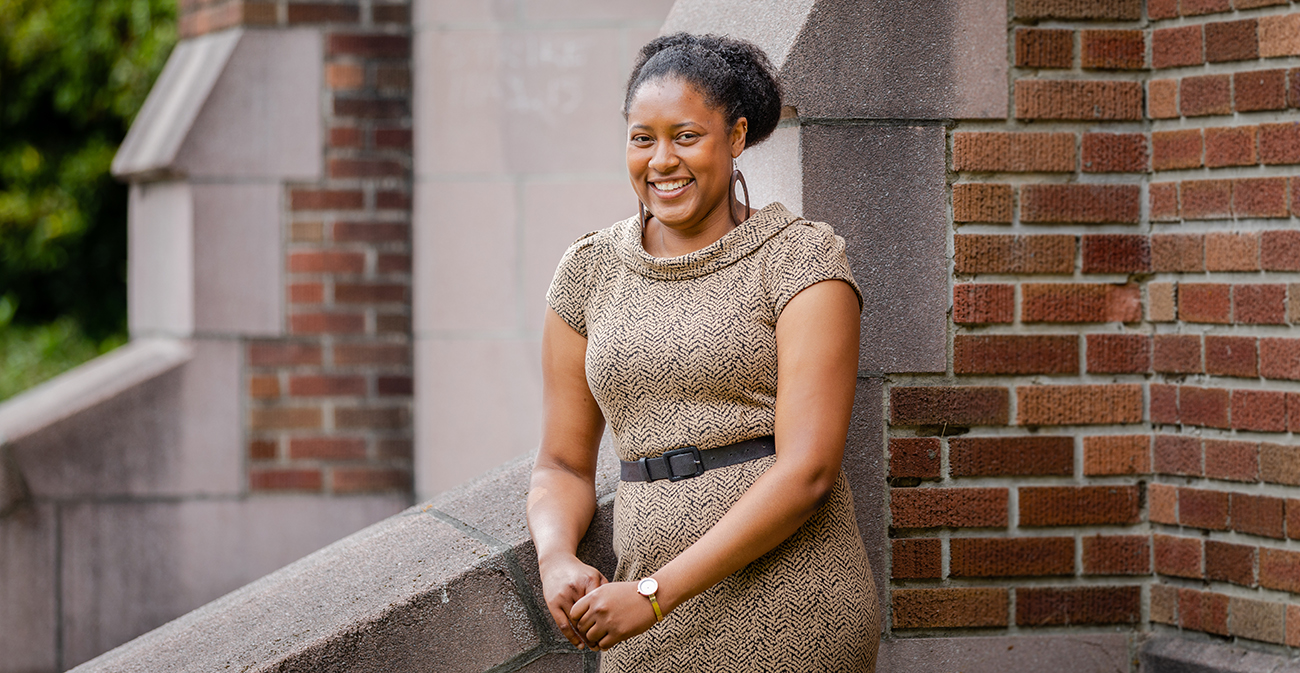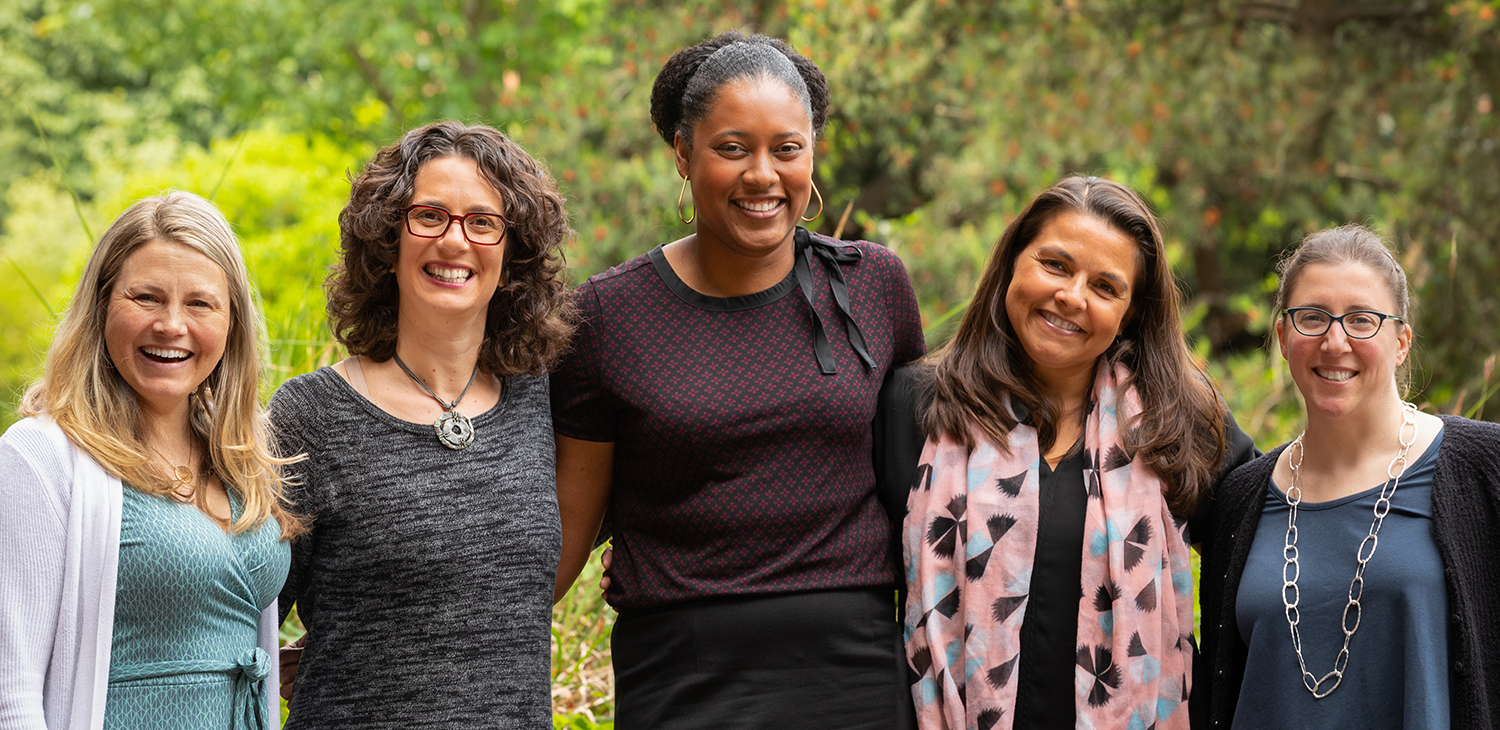When do we become aware of race and equity? Arianne E. Eason (PhD, Psychology, 2018) says it happens before middle school or even grade school. In her research, she has seen that even preschoolers view racial preferences as normal and young toddlers think about equity. Rather than alarming her, these findings give her hope.
“Often people tend to think that kids don’t see race, but the data definitely suggest that as early as four years of age, kids are starting to show preferences for people who are in the same racial group,” says Eason. “They are more likely to interact with same-race peers, and they expect other people to have those preferences as well. If we can understand when this starts happening, and the social environment cues they’re paying attention to, I believe we can leverage that to move toward change.”

Eason has long been interested in race and equity. She developed an interest in psychology more recently, by chance. As a pre-med student at Yale, she needed a job to complete her financial aid package and learned of an opening in the developmental psychology laboratory of Kristina Olson, who studies how children think about social categories. By her junior year, Eason was conducting independent research in Olson’s lab. She decided to pursue a PhD in psychology rather than an MD, and chose the University of Washington for graduate school.
“In my field, I sit across both developmental and social psychology, and the UW was very open to me being able to do both,” Eason says. “It ended up being the best place to do the work that I’m doing.” Olson joined the UW faculty soon after, and remains one of Eason’s mentors.
At the UW, Eason has focused on factors that influence our attitudes about race. Her research has looked at how racially segregated environments, such as predominantly single-race neighborhoods or classrooms, influence not only an individual’s views about interacting with other races, but also their perceptions of whether other races are open to interacting in return.
In my field, I sit across both developmental and social psychology, and the UW was very open to me being able to do both.
“My dissertation is largely about how we take cues from our social environment, particularly about the patterns of same-race and cross-race interactions,” says Eason. “I look at how that informs the way we think about individuals within the society, who should be and who are friends, and the consequences of that.”
Four faculty advisers — psychology professors Jessica Sommerville, Stephanie Fryberg (also in American Indian Studies), Cheryl Kaiser, and Olson — have helped guide Eason through her graduate studies. Eason fondly dubs them her “council of elders” and says they have helped her become a more effective researcher and a better person.

“They are all very different from each other, and they have given me a vision of what it means to be a successful scholar, which is different for each of them,” says Eason. “I feel so humbled and blessed to have them invest in me as a scholar and as a person, because they didn’t have to do that.”
That mentorship has led Eason in unexpected directions. Intrigued by Sommerville’s Early Childhood Cognition Lab, Eason developed a project there to look at young children’s awareness of equity. Studying 15-month-olds’ perceptions of people based on their resources, she learned that even the youngest toddlers think people with more are better than people with less.
“The idea that 15-month-olds are evaluating others based on how much stuff they have, and that they are evaluating disadvantaged recipients negatively — that is sobering,” says Eason. “They are not necessarily hearing stories about why people have more or less, but constructing in their minds what they think is happening. It begs the question of how early we should introduce these stories, and what else 15-month-olds are noticing.”
Eason wrote a paper about this research, one of at least seven that she is currently working on co-authoring. She has already published five papers. She credits support from a GO-MAP Presidential Award, a National Science Foundation Research Fellowship, and a Ford Foundation Pre-Doctoral Fellowship as providing her with the freedom to focus on this research program.
This fall Eason will continue to ask difficult questions about race and equity as a postdoc at Washington University, before joining the University of California-Berkeley faculty as an assistant professor of psychology in 2019.
As an African American woman and often one of the few people of color in research meetings about race, she hopes her presence in academia will help other people of color envision a similar path. “I recognize that I’m now part of a pipeline, and that hopefully this will be less of an issue for the next group of scholars,” she says. “I hope they see themselves reflected in the work, and in the people producing the scholarship.”
One thing is certain: though Eason is leaving the UW, her council of elders will remain a guiding force.
“I’m sure their role will change over time, but I have this sense they will always be there for me,” Eason says. “The way I think about the world and approach research is informed by all of them.” She laughs and adds, “We’ll never really get rid of each other.”
. . .
During her time at the University, Arianne Eason received support from several fellowships and awards, including the UW's GO-MAP Presidential Award. Learn how you can support College of Arts & Sciences students like Eason
More Stories

AI in the Classroom? For Faculty, It's Complicated
Three College of Arts & Sciences professors discuss the impact of AI on their teaching and on student learning. The consensus? It’s complicated.

A Love of Classics and Ballroom
Michael Seguin studied Classics at the UW and now owns Baltimore's Mobtown Ballroom. The two interests, he says, are more connected than they might seem.

Bringing Music to Life Through Audio Engineering
UW School of Music alum Andrea Roberts, an audio engineer, has worked with recording artists in a wide range of genres — including Beyoncé.